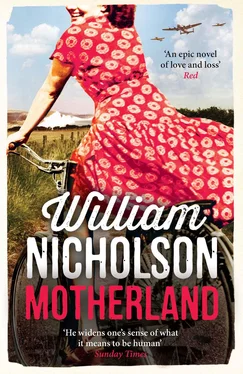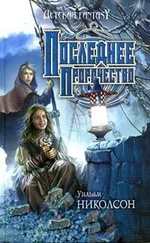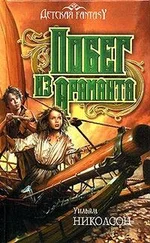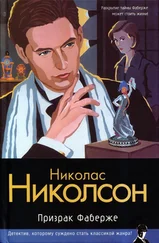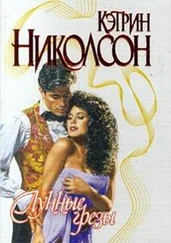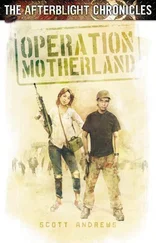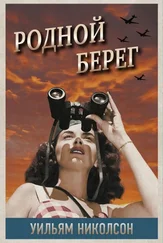‘Edwina Mountbatten?’ says Larry. ‘Isn’t she supposed to be a playgirl?’
‘People are always so much more complicated than one thinks, aren’t they?’
At the door, bidding Larry goodbye, he adds, ‘Did you mean that about Ed Avenell?’
‘Every word.’
‘I’ll see that it gets looked into.’
* * *
The army camp in the park of Edenfield Place is now a ghost town. Twelve hundred men left from here to join the assault on Dieppe. A little over five hundred returned. This rump has now departed, to combine with other units of the Canadian forces, in new quarters. The NAAFI shelves have been cleared, the mess huts stripped of their tables and chairs, the Canadian flag struck from the flagpole in the parade ground.
Larry walks slowly up the camp’s main street, limping a little, using his walking stick. He is back in Edenfield to collect his few belongings from his farmhouse billet, and is making this last visit as a kind of homage. Too many men have died.
He turns away from the camp and down the avenue of lime trees to the lake. There is the lake house, where he first set eyes on Kitty. That sunlit day now seems to him to have slipped away into the distant past. He’s been trying not to think of Kitty, because that leads to thoughts of Ed, and the possibility that he was killed on the beach at Dieppe. Thinking this causes such turmoil within him that he shakes his head from side to side, as if by doing so he can drive out the shameful hope that follows.
He makes his way back up the avenue to the big house, wondering if George Holland is at home, when he sees a figure coming towards him.
‘Kitty?’
The figure breaks into a run.
‘Larry!’
She comes to him and hugs him, laughing out loud.
‘I thought it must be you!’
‘Careful! I’m still wobbly.’
‘Oh, Larry! How wonderful to see you!’
Her eyes so bright, her lovely face so filled with happiness.
‘I didn’t think you’d still be here,’ Larry says. ‘Haven’t your mob been posted somewhere else?’
‘I’m out,’ she says. ‘Para eleven.’
One of the few ways of being released from service, and available only to women.
‘Kitty! You’re going to have a baby!’
She nods, smiling.
‘And even better – Ed’s alive! He’s a prisoner of war.’
‘Oh! Thank God!’
He speaks quietly, but he means it. A deep sensation of relief flows through him. It’s as if in loving Kitty, in hoping to benefit from Ed’s death, he has wanted to kill him. But Ed is not dead. As soon as he understands this Larry knows that it’s the right way for things to be. Ed, so gallant, so genuinely courageous, deserves to live. He deserves to be loved by Kitty. He deserves to be the father of her child.
Kitty feels the silent intensity of his relief, and is moved.
‘You really are good friends, aren’t you?’ she says.
‘Ed’s part of my life,’ says Larry.
She slips her arm through his, and they walk back together to the house.
‘I’m glad Ed has you,’ she says. ‘It shows he has good taste in friends.’
‘In wives, too.’
This reminds Kitty of her other news.
‘Guess what? George is going to marry Louisa!’
‘Is he, now?’
‘Are you surprised?’
‘Not entirely. Though I’d like to know how George ever got round to popping the question.’
‘I don’t think he did. I think Louisa did the popping.’
Oddly enough, this news leaves Larry feeling a little sad. Everyone round him is getting married. Life moves so fast in wartime.
‘So where will you go to have the baby?’
‘Back home. Mummy is going to look after me.’
‘In deepest Wiltshire.’
‘Malmesbury’s the oldest borough in England, you know. We’re very proud of that. Also the dullest. So you’ll have to come and visit me.’
‘And it.’
‘Definitely. It must be visited.’
They enter the house through the garden porch.
‘It’s awful here now the Canadians have gone,’ says Kitty. ‘We all miss them frightfully. That whole Dieppe affair was pretty bad, wasn’t it?’
‘The rumour is seventy per cent casualties,’ says Larry.
‘I can’t even imagine that. I know it’s wrong, but all I can think is, Ed’s alive, and you’re alive.’
‘It’s not wrong. It’s how we’re made. There’s only so many people we can care about.’
‘You know what, Larry?’ She clasps his hands and drops her voice, as if she’s imparting a secret that’s almost too precious to be spoken aloud. ‘I shall love my baby so much.’
12
The first days of June bring rain and sunshine. The cornflowers at the wild end of the garden glow bright blue in the slanting early-morning light. The bedroom has no blackout curtains. In these long summer days there’s no need for lights going to bed.
Kitty is woken early, as she is every morning, by the baby’s sudden cry. For some reason the little thing is incapable of waking gently. She comes out of sleep with a sharp call of alarm, as if frightened to find herself alone in her cot. Kitty is out of bed at once, and has her baby in her arms.
‘There, darling. Don’t cry, darling. Mummy’s here.’
She settles down in the high-backed armchair in the bay window, and opens up her nightdress. The baby’s eager searching mouth finds the breast, and settles down to contented sucking. Kitty holds her close, stroking her fine hair, feeling the heat of her tiny body against hers. Her baby is not quite four weeks old.
It’s just after five and the house is still, and the town is still. The baby makes regular snuffling noises as she sucks, and Kitty holds her close and loves her more than she ever knew it was humanly possible to love.
‘You’re my baby, my baby, my only baby. Mummy’ll love you for ever and ever.’
These early mornings have become precious to her. She knows the two of them will never be as close again. This is their time of utter absorption in each other, when she is everything to her child, food and drink, warmth and love and protection. In return this tiny creature takes up her every waking moment, and half of her dreams.
Her name is Pamela, after Kitty’s grandmother. When it came time to fix on a name her mother said to her, ‘What are the girls’ names in Ed’s family?’, and Kitty realised she didn’t know. There’s so much she doesn’t know.
‘Daddy’ll come home to us one day, darling. And won’t you be his princess? Won’t he just love you more than anyone in all the world?’
Little Pamela finishes feeding at last, and slips back into sleep. Kitty watches her sleeping in her arms, her eyelids blue-shadowed, her cheeks radiant as the morning, her perfect little lips twitching as she dreams. She kisses her, knowing it won’t wake her, and lowers her back into her cot.
Hungry herself now she pads barefoot down to the kitchen, and draws back the heavy blackout curtains. Brilliant light streams into the familiar room, making the white tiles on the walls glitter, throwing a stripe of gold over the scrubbed-wood kitchen table. She gets the iron hook and lifts the plug out of the Rayburn hotplate, and shakes a handful of coke into the furnace. Then she opens up the air vent below to get a good heat going, and puts the kettle on to boil.
She explores the larder, before the war always so crowded with good things to eat, now given over to jars of pickled cabbage and apple chutney and potatoes still clotted with the earth from which they were dug. Her mother has become a grower of vegetables. ‘Life would not be bearable without onions.’ At such a time before the war Kitty would cut herself a slice of leftover veal pie, or feast on some of her mother’s famously moist and chewy gingerbread. Now there is a thin end of a loaf left, and no butter until the new week’s ration is fetched.
Читать дальше
